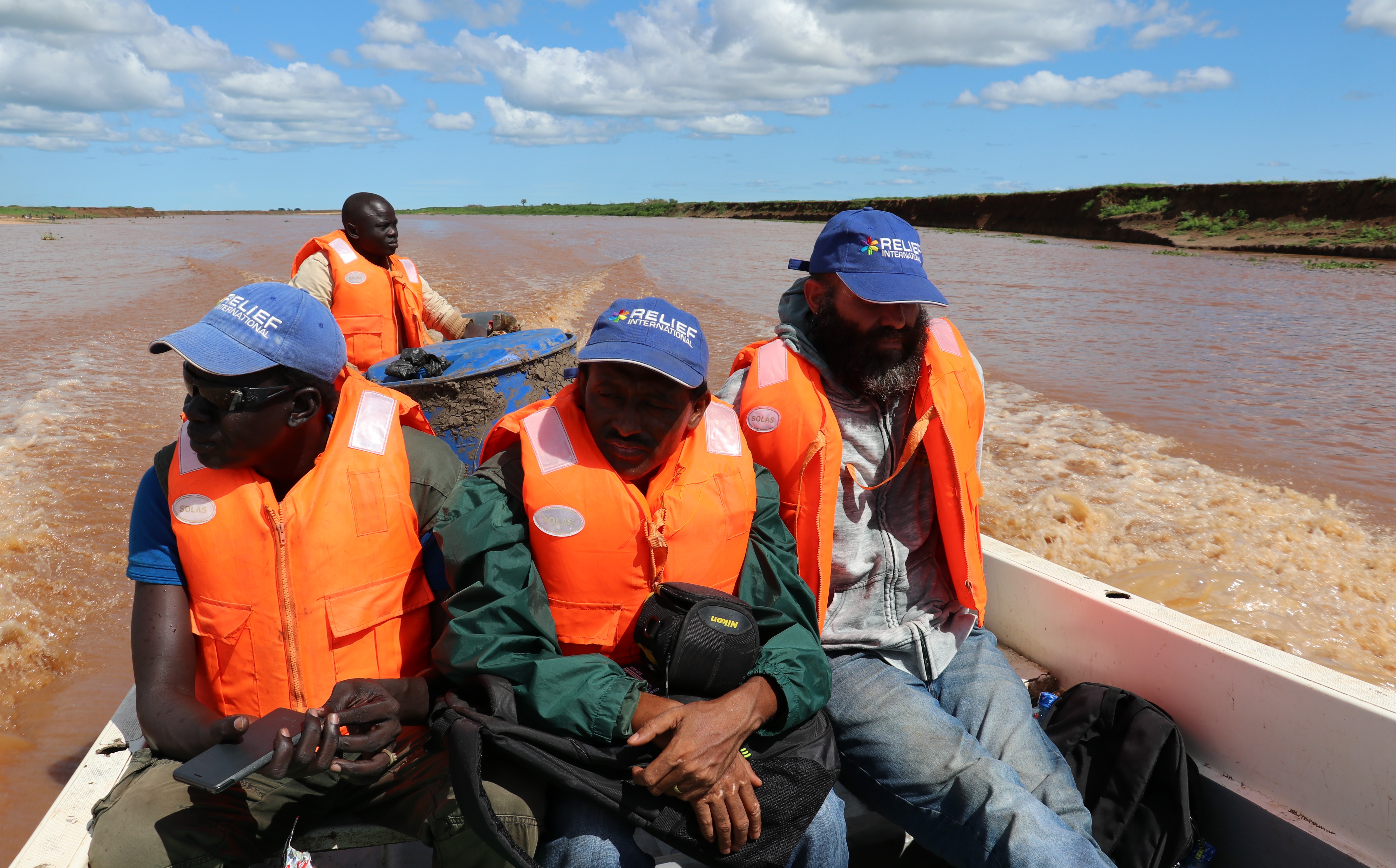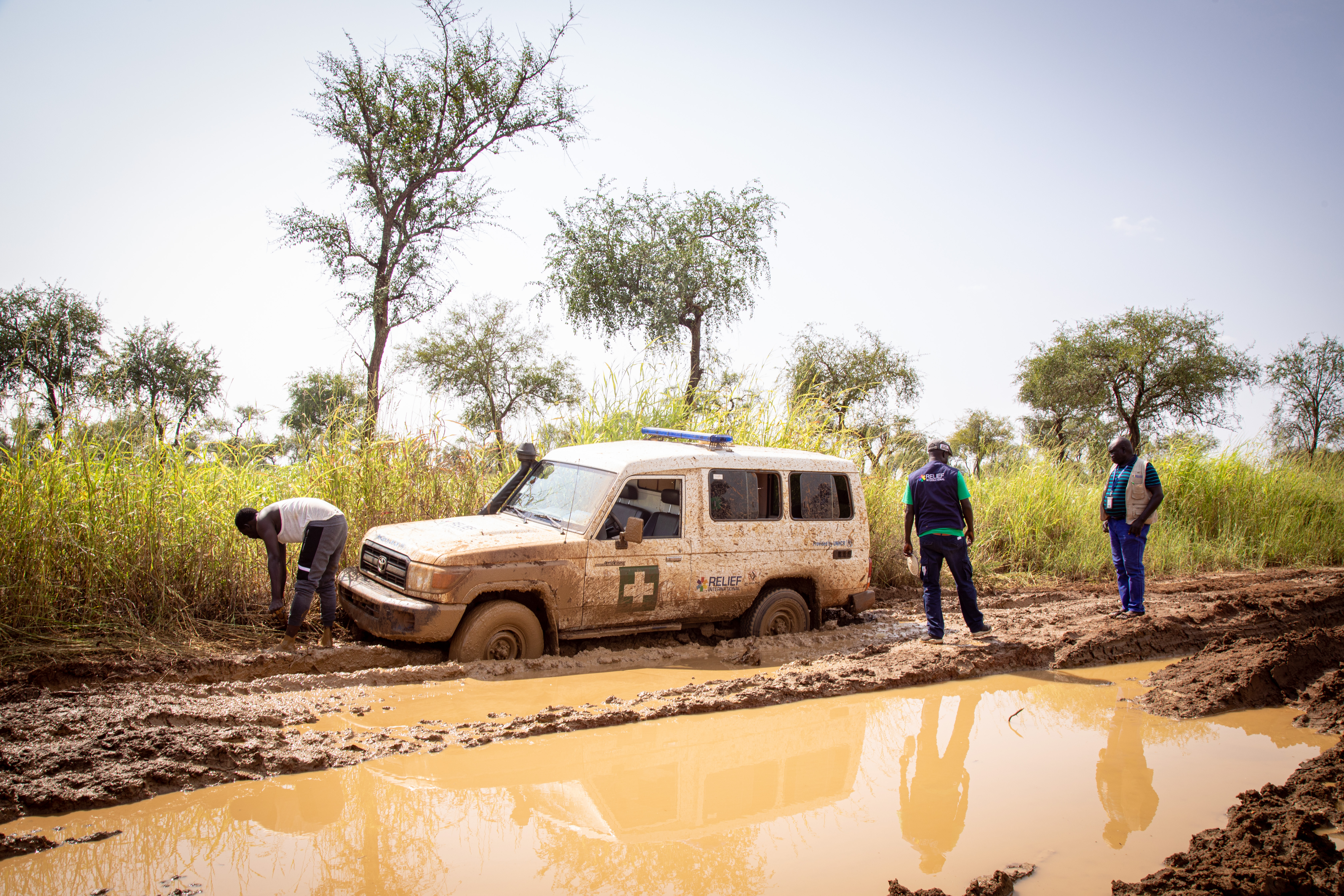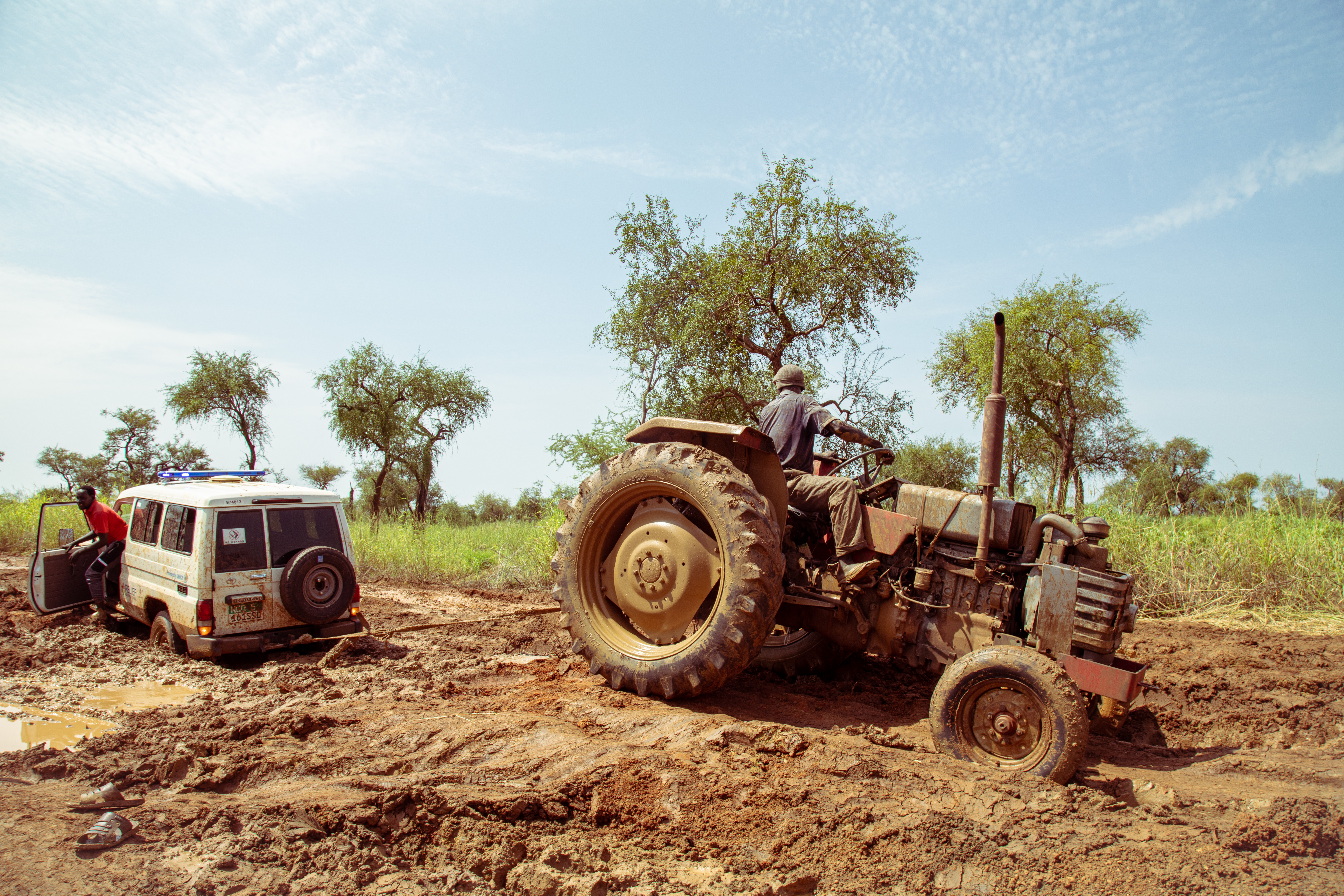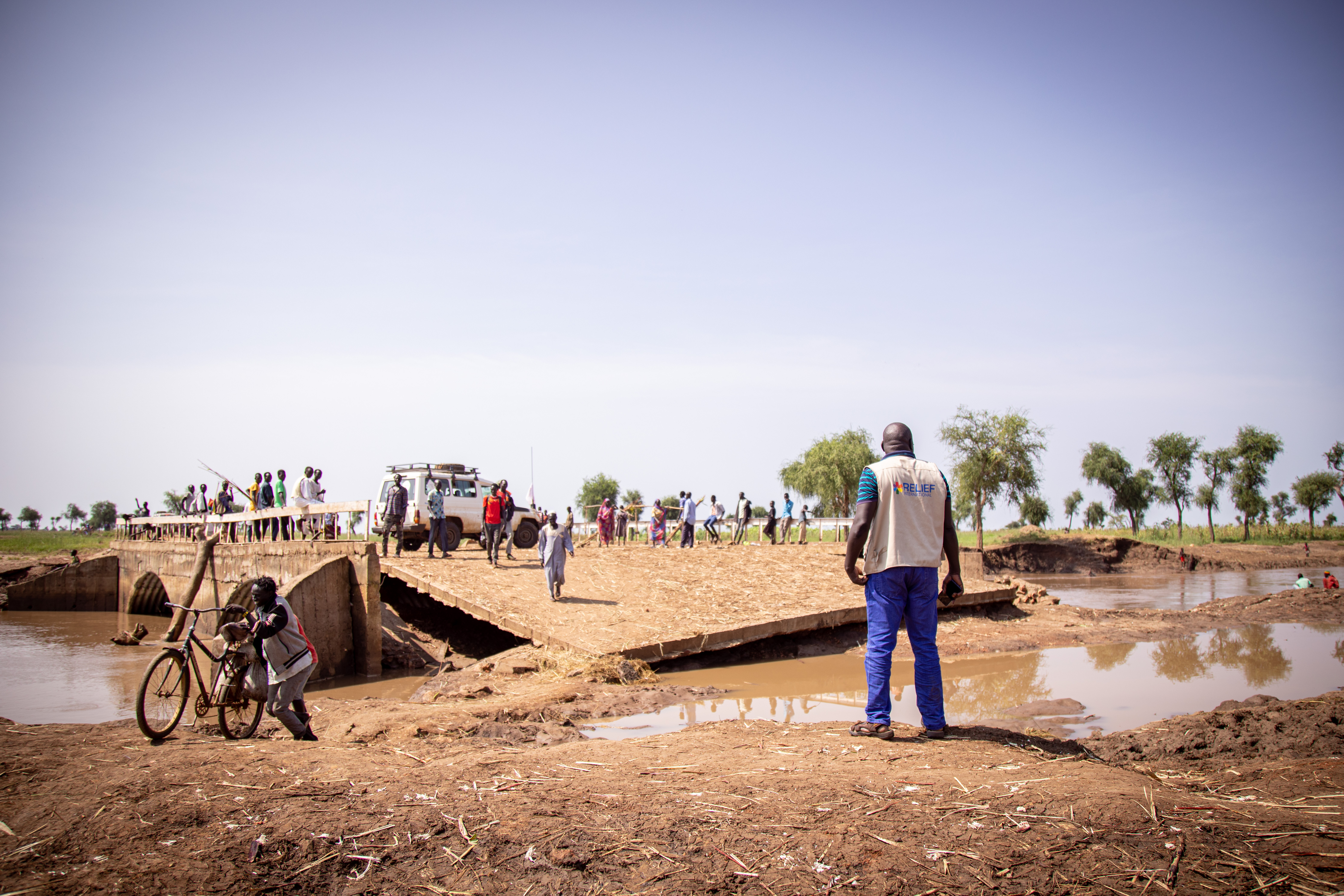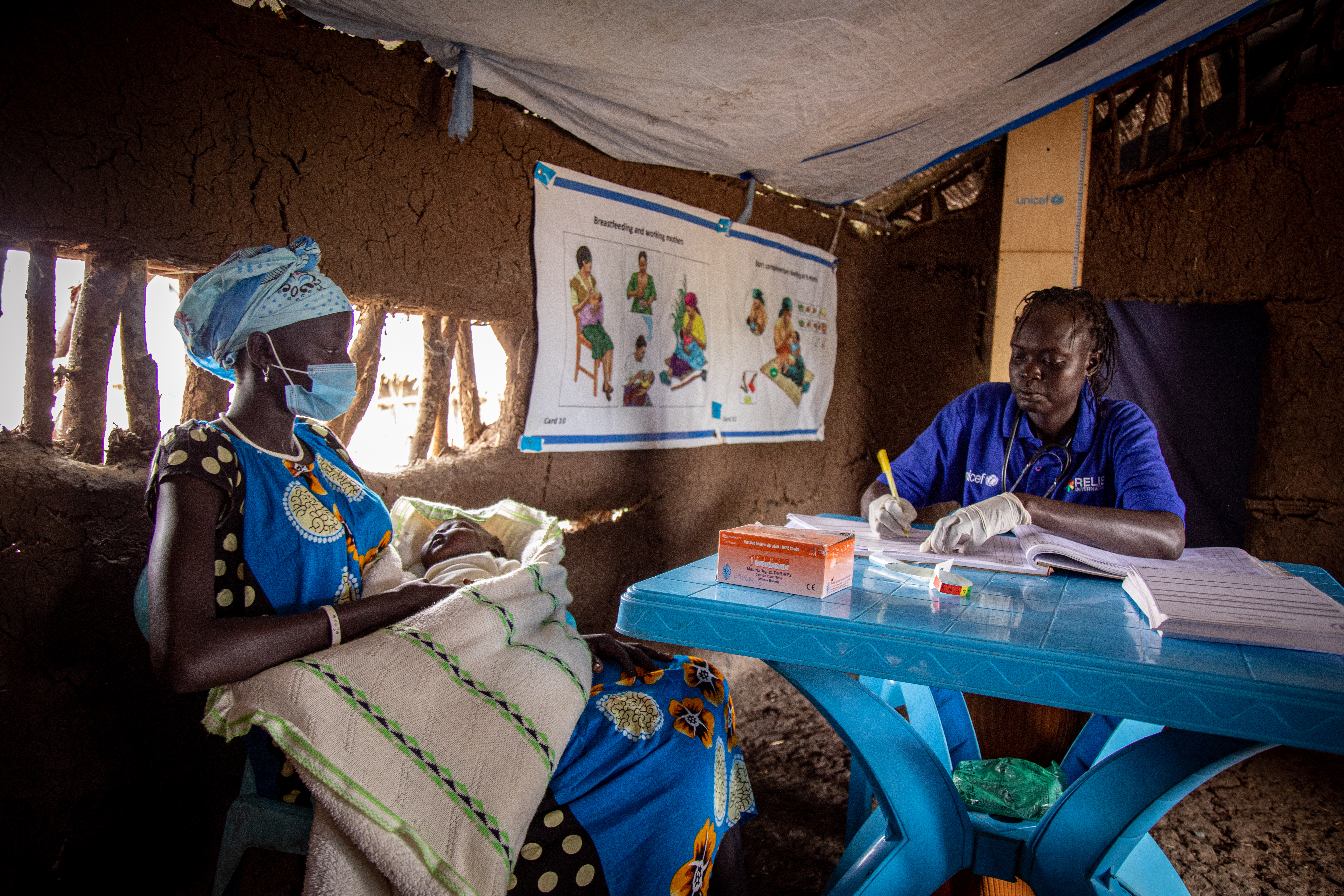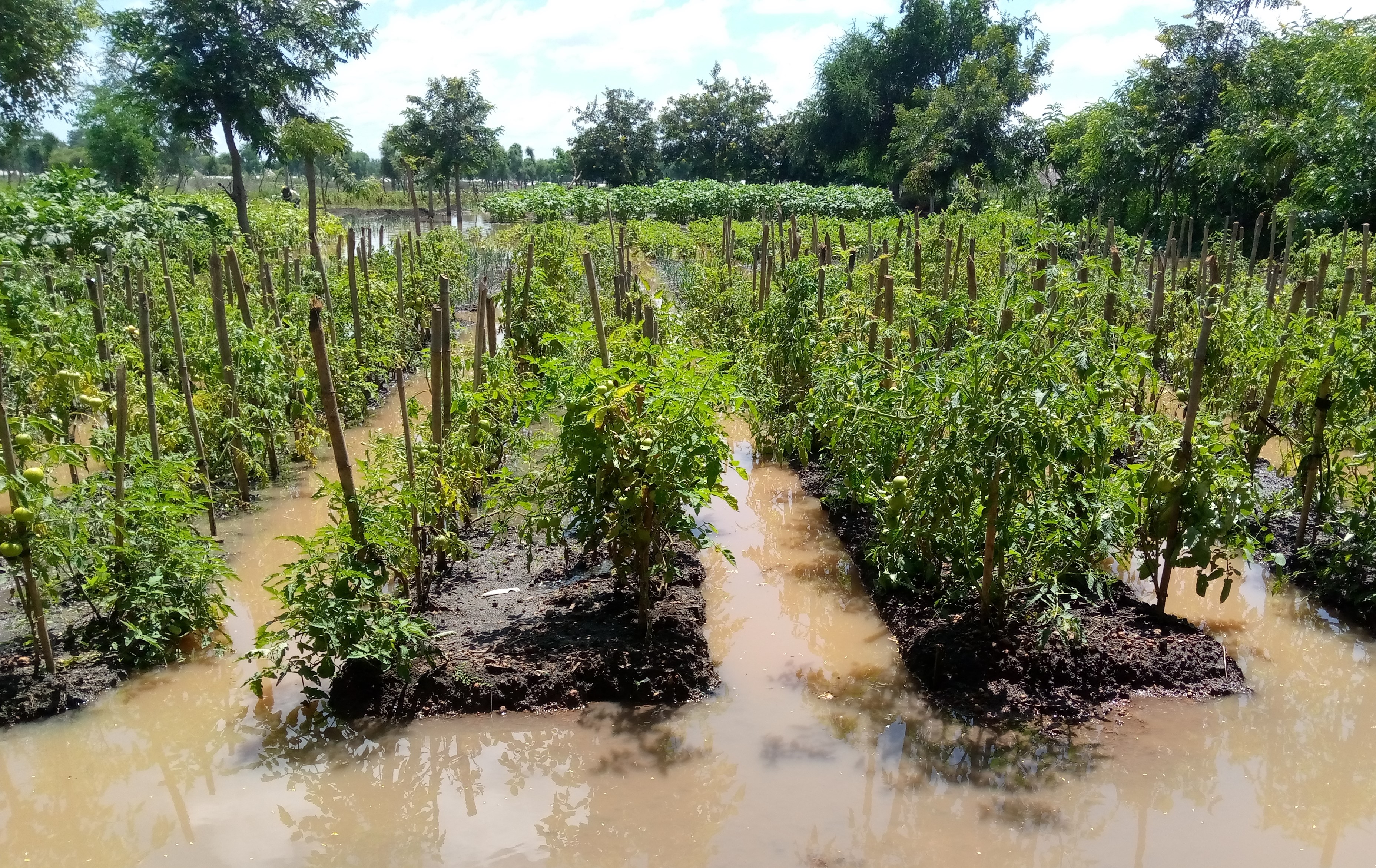In South Sudan, when it rains, it pours.
Every year, prolonged flooding caused by days of heavy rain devastates people’s lives in the hard-to-reach parts of the country.
Floods and ongoing conflict in South Sudan and neighboring Sudan have forced people to flee their homes, leading to mass displacement and overcrowding in temporary camps. In these camps, displaced families have limited access to food, water, shelter, and healthcare. Furthermore, the floods destroy crops and disrupt farming activities, causing food insecurity and malnutrition-related disorders to rise.
According to OCHA, more than 1 million people in 39 counties across South Sudan were affected by severe flooding in 2022. As a result of the compounding effects of ongoing conflict and flooding, in 2023, an estimated 9.4 million people require urgent humanitarian support in South Sudan.
As flood levels rise, providing life-saving healthcare assistance only becomes more difficult.
"Each time we have floods in South Sudan, it becomes tougher and riskier for our health workers to access health facilities and provide much-needed services to the community," says Chieza, RI Logistics Manager in South Sudan.
Recurrent floods repeatedly destroy essential infrastructure, including properties and roads, sweep away bridges, and renders airstrips unusable – making large parts of the country inaccessible.
Delivering healthcare in remote areas during these periods, therefore, becomes a complex mission that requires careful planning, sacrifices, tough decisions, and, most importantly, the collaboration of everyone in the community.
Relief International offers essential healthcare services to nearly 1 million people annually at our network of hospitals, clinics, and mobile medical units across four counties of South Sudan. With help from the communities we work with, our staff tries to make sure that floods do not disrupt the delivery of life-saving healthcare services to remote families.
Every day, RI’s dedicated staff, in their different capacities, commit to contributing to this cause. Some walk through floodwaters to get to work, while others have to use destroyed roads to provide critical services to those isolated by floods.
From the pharmacist who manages medical supplies, the midwife who works overnight assisting mothers to deliver their babies safely, and the drivers who ferry supplies to the communities, RI staff work together to provide much-needed services to those who need them the most.
Malik is an ambulance driver for RI. He transports patients between the Kaya IDP camp and RI’s health facility in nearby Jentil.
“I went to pick up a patient from Kaya to Jentil, and on our way to the hospital, we got stuck in the mud. Local community members had spread the word about us being stuck. The next day, one of the community members brought a tractor that pulled us out of the mud.
“The roads are bad during the rainy season, but we must help,” added Malik.
Local community members’ knowledge enables them to send early warnings to our staff, allowing us to plan and preposition medical supplies such as drugs and ambulances. When floods have made all roads impassable, community members assist in ferrying patients to the health centers and even carrying medicines and other medical supplies on their heads as porters.
Nan lives with her husband and two children in Maban County, South Sudan’s Kaya IDP settlement. Her labor pains started at 2 am, and her husband rushed her to the nearby RI health facility in Kaya.
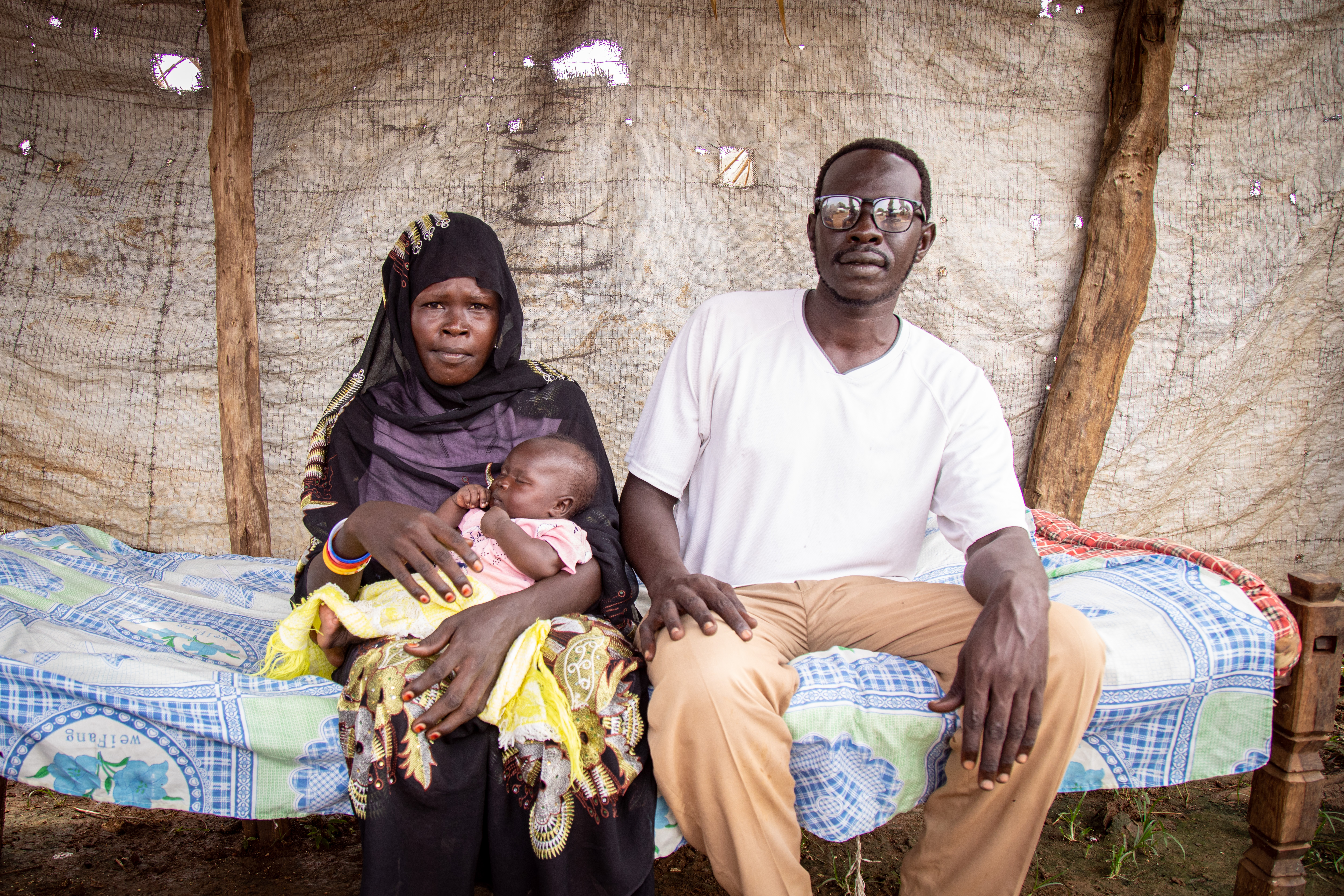
Nan and her husband at their home in Kaya, Sudan.
Upon examination, the nurses discovered she had a complication, and they had to refer her to the Jentil health facility. But when they tried to move Nan, they found the floods had washed away a bridge on their way, and the water level was dangerously high.
“My husband and people in the community, including RI staff, made a makeshift canoe from wood and jerry cans. They pushed me through the water to the other side, where an RI ambulance was waiting to take me to the hospital,” Nan narrates.
Working together RI staff and local community members were able to get Nan to the hospital and to the lifesaving care she desperately needed.
Most of the RI team in South Sudan come from the same communities they serve. They understand their needs and can provide follow-ups at home even when flooding hinders them from accessing the clinics.
To combat the accessibility challenges, Relief International operates four Mobile Medical Units to provide essential access to life-saving health, nutrition, and water sanitation and hygiene services to those in need.
Bhan Chuol lives with her two sons and husband in Thulup Village. The only way to get to her village is by canoe. One day, while the Mobile Medical Team had camped in her village, Bhan Chuol noticed her son’s body was hot.
“I rushed him to the clinic,” narrates Bhan. “The doctors told me that he had malaria and gave him medication. My son was treated and has since recovered. He is now playing with other children, and I am happy.”
"I thank RI for bringing these services close to us," added Bhan Chuol.
The Mobile Medical Unit teams fight harsh weather conditions to access some villages. Tabitha, RI’s Midwife, and part of the team, describes her experience assisting the communities during floods.
“We face numerous challenges and risks while serving the community—sometimes camping in a village and sleeping in muddy places because of the floods.”
“Sometimes there are snakes during this flooding season; we thank God no one in our team has been bitten even though we often encounter the snakes.”
“The community encourages me to continue working for them. I am happy they see the value of our work and appreciate our efforts. I am glad to serve my community.”
“Despite the numerous challenges we face in delivering healthcare in remote areas in South Sudan, the determination of RI staff and the participation of the communicates we serve to ensure the continuity of life-saving care.”
